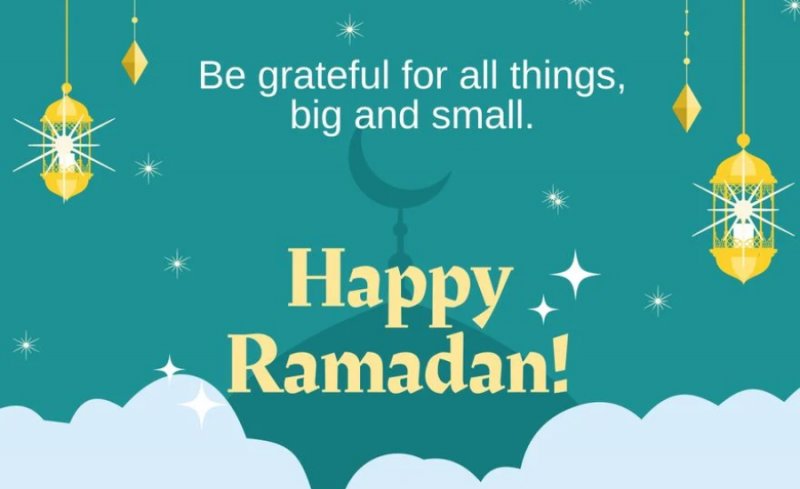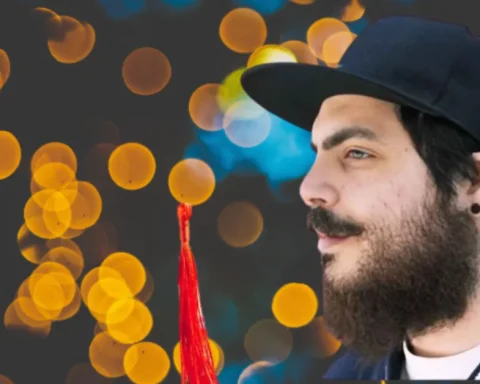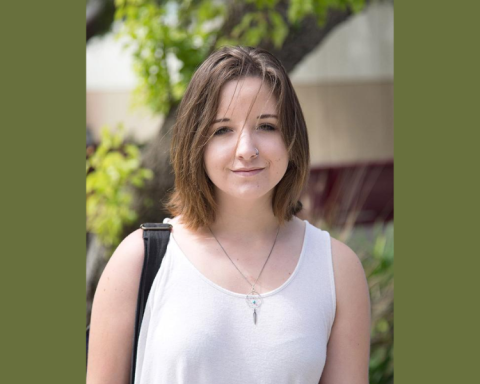As we explore the endearing customs of Ramadan, welcome to a journey of spiritual growth and introspection. By providing insights and useful suggestions to help you make the most of this unique period, this guide seeks to shed light on the significance of this holy month. A unique place in the hearts of millions of people worldwide is reserved for Ramadan, a season of fasting and profound spiritual connection. Come discover the intricate web of rites, devotional practices, and a strong sense of camaraderie that characterizes this auspicious time, whether you are a novice or an experienced participant. Come celebrate with us the joy and transforming power of Ramadan.
Understanding Ramadan
Gaining an understanding of the roots of Ramadan and its deep significance for millions of people globally is crucial to appreciating its core. Islamic faith centers on Ramadan, a period of devotion, self-control, and introspection. The lunar calendar-based Ramadan begins with a month of fasting from sunrise to sunset. Not eating or drinking is a time for thought, prayer, and benevolence. The main ideas of fasting will be discussed in this part, along with its spiritual significance and wider effects on both communities and individuals. Delve into the true essence of Ramadan and set out on a quest for introspection.
Preparing for Ramadan
As the blessed month of Ramadan approaches, it’s crucial to embark on this spiritual journey with both mental and physical readiness. Mentally, prepare your heart and mind for the profound experience ahead. Set intentions, reflect on your spiritual goals, and open yourself to the transformative power of this sacred time.
Prepare your body for fasts. This requires changing your meal pattern and consuming a balanced diet for daylong energy. To stay nourished and hydrated, drink plenty during non-fasting hours. Adjust your sleep schedule to be well-rested and able to actively participate in Ramadan’s spiritual activities.
By approaching Ramadan with a prepared heart and a nourished body, you’ll be better equipped to embrace the spiritual growth and connection that this sacred month offers. May this preparation lead to a deeply enriching and meaningful Ramadan experience for you.
The Fasting Experience
Ramadan fasting is a profound spiritual experience that goes beyond abstaining from food and drink. It integrates self-discipline, contemplation, and spirituality.
The day begins with Suhoor, the pre-dawn meal, providing sustenance for the day ahead. It’s a time for mindful eating, and choosing foods that offer lasting energy. As the sun sets, the evening meal, Iftar, brings a sense of communal unity. It’s a moment to break the fast, offering gratitude for the sustenance provided.
While navigating the pangs of hunger and thirst, remember that fasting isn’t solely a physical endeavor. It’s a conscious act of devotion, a means to strengthen one’s spiritual connection. The practice of self-control cultivates empathy for those who are less fortunate and deepens gratitude for the blessings in our lives.
Indeed, the benefits of fasting extend far beyond the physical realm. It rejuvenates the soul, purifies the heart, and instills a sense of discipline that carries forward beyond Ramadan. As you engage in this spiritual exercise, allow it to be a source of growth, reflection, and a pathway to a deeper connection with the Divine.
Acts of Worship
Salah (Prayer) and its Importance
Engaging in regular prayers, known as Salah, is a cornerstone of worship during Ramadan. These structured moments of connection with the Divine serve as a spiritual anchor, providing guidance and a sense of purpose throughout the day. Through Salah, believers seek closeness to Allah, finding solace and strength in their faith.
Recitation of the Quran
The Quran, Islam’s holy scripture, is important throughout Ramadan. It may have been the month the Quran was revealed. Thus, faithful Muslims recite and contemplate its verses. This practice fosters a deepening of faith, understanding, and a heightened spiritual connection.
Acts of Charity (Zakat)
Giving to those in need is a fundamental act of worship in Islam, and it takes on special significance during Ramadan. Through Zakat, individuals contribute a portion of their wealth to support the less fortunate. Givers purify their souls and strengthen community relationships by helping others.
These worship practices throughout Ramadan offer tremendous spiritual growth and communion with the Divine. They remind one of the necessity of faith, compassion, and selflessness in discovering their mission and relationship with Allah.
Deepening Spiritual Connection
Deepening one’s spiritual connection is at the heart of the Ramadan experience. It transcends the physical act of fasting, delving into the realm of profound self-reflection and devotion. Nightly Taraweeh prayers, a distinctive feature of Ramadan, offer a dedicated time for extended worship and contemplation. It’s a period to seek solace, forgiveness, and a heightened closeness to the Divine.
Laylat al-Qadr, the “Night of Power,” is crucial during Ramadan’s final 10 nights. Muhammad received the Quran this night. Devout Muslims pray, supplication, and contemplate to receive blessings and spiritual enlightenment this night.
Yet, it’s not just about prescribed rituals; personal reflection and Du’a (supplication) play an equally vital role. Taking moments of solitude to connect with Allah on a deeply personal level allows for a profound sense of intimacy and spiritual growth. These moments of sincere conversation with the Divine serve to strengthen faith, offer guidance, and provide solace in times of need.
In the pursuit of deepening one’s spiritual connection during Ramadan, it’s essential to approach these practices with sincerity and an open heart. Through these avenues, believers find a sense of purpose, comfort, and an enriched understanding of their faith, ultimately leading to a more profound and lasting connection with the Divine.
Strengthening Relationship
Ramadan serves as a powerful catalyst for strengthening the bonds that tie individuals and communities together. Within the family unit, it becomes a time of shared devotion and spiritual growth. Families come together for Suhoor and Iftar, engaging in moments of reflection and gratitude. These shared meals foster a sense of unity, providing opportunities for open conversations and mutual support.
Beyond the family, Ramadan amplifies the sense of community. Mosques become vibrant hubs, hosting Taraweeh prayers and collective Iftars. These gatherings allow individuals to come together in worship, creating an atmosphere of camaraderie and shared purpose. It’s a time when neighbors look out for one another, extending gestures of kindness and support.
Acts of charity, or Zakat, take on added significance during this month. The act of giving not only aids those in need but also binds the community in a shared commitment to uplift one another. Through collective efforts, communities rally to make a positive impact, reinforcing the values of compassion, empathy, and solidarity.
In essence, Ramadan becomes a time of deepened connections. It’s a period to celebrate the ties that bind us, whether through shared meals, communal prayers, or acts of generosity. These experiences strengthen the fabric of relationships, leaving a lasting impact that extends far beyond the month itself.
Navigating Challenges
Balancing Work and Worship
Balancing the demands of work or daily responsibilities with the spiritual commitments of Ramadan can present a significant challenge. It requires careful planning and prioritization. Some individuals may choose to adjust their work schedules, allowing for breaks during prayer times or finding moments for quiet reflection. Open communication with employers and colleagues can also be crucial in creating a supportive environment.
Dealing with Hunger and Thirst
Fasting from dawn till sunset can bring about physical challenges, particularly with regards to hunger and thirst. It’s essential to approach Suhoor, the pre-dawn meal, thoughtfully, choosing foods that provide sustained energy. Staying well-hydrated during non-fasting hours is equally crucial. Additionally, listening to your body and resting when needed is a vital aspect of managing these physical challenges.
Managing Fatigue
The change in routine and the physical demands of fasting can sometimes lead to fatigue. It’s important to prioritize rest and sleep, ensuring that the body has the opportunity to recharge. Naps during the day, if possible, can be a valuable way to combat fatigue. Moreover, engaging in light physical activity, like a short walk, can help maintain energy levels.
Mindfulness, self-care, and adaptation are needed to overcome these problems. Finding what works for you is crucial because everyone’s experience is different. These activities aim to deepen your spiritual connection and progress during this hallowed season.
Celebrating Eid al-Fitr
Festival of Breaking the Fast, Eid al-Fitr, concludes Ramadan joyfully. The month of fasting brought spiritual growth and self-discipline, which is celebrated and thanked. Family and community members dress in their best to greet and wish each other. People thank Allah for giving them the strength to fast at a special mosque prayer service.
After the prayers, a festive atmosphere permeates homes as families partake in elaborate feasts. Traditional dishes, passed down through generations, take center stage, creating a sensory delight for all. Gifts are exchanged, especially among children, further enhancing the sense of joy and unity. Acts of charity and giving back to the community hold particular significance during this time, ensuring that all may partake in the festivities.
Eid al-Fitr is not only a celebration within the Muslim community but also an opportunity to extend goodwill to neighbors and friends of different faiths. Open houses and shared meals further strengthen the bonds of friendship and understanding. Through these collective festivities, the spirit of Eid serves as a reminder of the universal values of love, compassion, and togetherness that transcend cultural and religious boundaries. It is a day of immense joy and reflection, encapsulating the essence of gratitude and unity that Ramadan instills in the hearts of believers.
Personal Growth and Reflection
Ramadan is about self-improvement and reflection. This holy month allows people to explore their hearts and brains for self-improvement and spiritual awakening. Introspection of acts, goals, and relationships is encouraged to deepen one’s connection with the Divine.
Fasting teaches self-control and discipline. Mastering desires and focusing on soul matters is the goal. This newfound discipline typically guides daily life after Ramadan.
Ramadan promotes positive change. It makes people rethink their priorities and prioritize kindness, charity, and empathy. Fasting increases sympathy for the poor and generous giving.
Ramadan is a transforming time for personal growth and introspection. Self-discovery strengthens one’s relationship to oneself and the Creator. This process gives people a deeper sense of purpose, values, and gratitude for life’s rewards.
Maintaining Physical Well-being
Ensuring physical well-being during Ramadan is of paramount importance. Fasting from dawn till sunset demands a thoughtful approach to nutrition and hydration. It begins with Suhoor, the pre-dawn meal, where individuals should focus on foods that provide sustained energy. Incorporating complex carbohydrates, protein, and fiber-rich foods is essential in sustaining energy levels throughout the day.
Hydration matters too. Staying hydrated during non-fasting hours requires plenty of fluids. Electrolytes can be replenished by water, juices, and fruits. Sugary and caffeinated drinks can cause rapid blood sugar changes, so avoid them.
Staying active helps maintain physical health. Stretching and short walks can avoid muscle tightness. However, listen to your body and don’t overdo it, especially while fasting.
Finally, physical health requires appropriate rest. Quality sleep rejuvenates and repairs the body. Daytime naps can boost energy.
By prioritizing nutrition, hydration, gentle exercise, and sufficient rest, individuals can navigate the physical demands of Ramadan with greater ease and ensure their overall well-being is maintained throughout this sacred month. Remember, the intention behind these efforts is to enhance your spiritual experience while safeguarding your health.
Mental Health and Well-being
Positive mental health is essential to a satisfying Ramadan. Fasting is spiritually rewarding but can cause mental and emotional issues. This month requires self-compassion and emotional awareness. Mindfulness and self-reflection can boost positivity.
Managing stress becomes crucial during this period. Meditation, deep breathing, and other relaxation techniques help reduce stress. Sharing worries and receiving comfort with trusted friends, family, or religious leaders can also be helpful.
Mental health also requires balancing tasks and creating reasonable goals. Recognizing one’s boundaries and being nice to oneself during exhaustion or emotional stress is vital. You can rest and take breaks when needed.
Fun and relaxing activities also improve mental health. Finding enjoyment and renewal through literature, nature, or creativity can improve mental health.
Ramadan mental health care is self-love and self-preservation. It helps people to completely experience the month’s spirituality while nurturing their emotions. A healthy mind makes Ramadan more meaningful.
Conclusion
We reflect on Ramadan with gratitude as it nears its end. It has been a time of significant spiritual growth, self-discovery, and Divine connection. We have tried to live Ramadan’s values via worship, self-discipline, and kindness.
The teachings, relationships, and inner strength we gained throughout Ramadan will last long after Ramadan. It shows how faith can change us and our communities.
May Ramadan inspire us to live its ideals and lessons. Let us keep learning, caring, and growing. We celebrate Ramadan and its rewards by doing so.
















